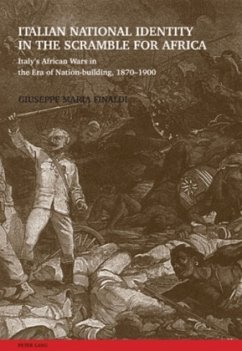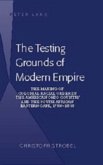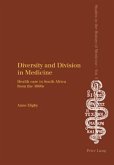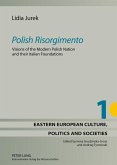Italy's First African War (1880-1896) pitted a young and ambitious European nation against the ancient Empire of Ethiopia. The Least of Europe's Great Powers rashly assailed Africa's most formidable military power. The outcome was humiliating defeat for Italy and the survival, uniquely for any African nation in the years of the European Scramble for that continent, of Ethiopian independence.
Notwithstanding Italy's disastrous first experience in the colonial fray, this book argues that the impact of the war went well beyond the battlefields of the Ethiopian highlands and reached into the minds of the Italian people at home.
Through a detailed and exhaustive study of Italian popular culture, this book asks how far the First African War impacted on the Italian nation-building project and how far Italians were themselves changed by undergoing the experience of war and defeat in East Africa.
Finaldi argues, for the first time in historiography on the subject, that there was substantial support for and awareness of Italy's military campaign and that 'Empire', as has come to be regarded as fundamental in the histories of other European countries, needs to be brought firmly into the mainstream of Italian national history.
This book is an essential contribution to debates on the relationship between European national identity and culture and imperialism in the late 19th century.
Notwithstanding Italy's disastrous first experience in the colonial fray, this book argues that the impact of the war went well beyond the battlefields of the Ethiopian highlands and reached into the minds of the Italian people at home.
Through a detailed and exhaustive study of Italian popular culture, this book asks how far the First African War impacted on the Italian nation-building project and how far Italians were themselves changed by undergoing the experience of war and defeat in East Africa.
Finaldi argues, for the first time in historiography on the subject, that there was substantial support for and awareness of Italy's military campaign and that 'Empire', as has come to be regarded as fundamental in the histories of other European countries, needs to be brought firmly into the mainstream of Italian national history.
This book is an essential contribution to debates on the relationship between European national identity and culture and imperialism in the late 19th century.








